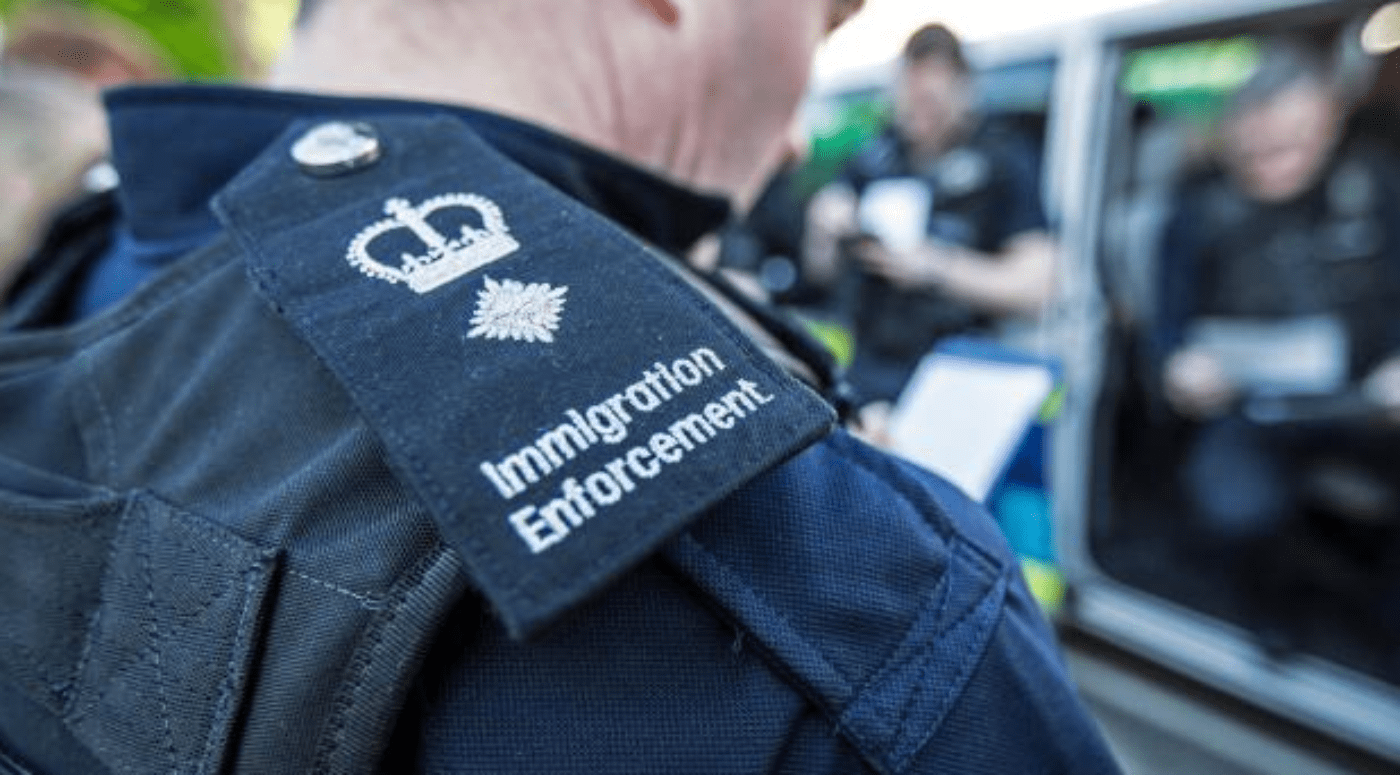

Assisting illegal entry or harbouring persons is a grave offence in England and Wales with shocking impacts on society, and the consequences of being charged and convicted with this offence are severe. If you are concerned about a charge that you are facing, or could face in the future, it is imperative that you understand the maximum sentence for the offence of assisting illegal entry or harbouring persons, and know where to seek further assistance. This article will cover the basics of the offence, including what constitutes assisting illegal entry or harbouring persons, and discuss the maximum possible sentence you might face. We’ll also explore key points from the sentencing guidelines and explain how a solicitor can help mitigate your sentence.
What is the offence of assisting illegal entry or harbouring persons?
The offence of assisting illegal entry or harbouring persons in England is a serious matter that involves helping individuals enter or remain in the country unlawfully. This is considered a criminal offence under specific sections of English law aimed at maintaining the integrity of the UK’s immigration system.
The primary statutes governing this offence are Section 25 of the Immigration Act 1971 – which makes it an offence to assist unlawful immigration – and provisions of the Nationality, Immigration and Asylum Act 2002 that criminalise harbouring and assisting unlawful entry.
To secure a conviction, the prosecution must demonstrate the following elements beyond reasonable doubt:
- The defendant intentionally facilitated the illegal entry or harbouring of an individual into or within the United Kingdom.
- The individual entering or being harboured was not in compliance with the necessary immigration laws and regulations.
- The defendant knew or had reasonable cause to believe that the person they were assisting was committing or attempting to commit an immigration offence.
Examples of the offence of assisting illegal entry or harbouring persons includes:
- Helping someone cross the border with a fake passport.
- Providing transportation to an individual knowing they have entered the country illegally.
- Offering accommodation to a person who has overstayed their visa.
- Supplying false employment documents to assist someone in securing illegal employment.
- Arranging a marriage of convenience to help someone gain immigration advantages.
- Bringing someone into the country in a concealed compartment of a vehicle.
- Helping someone evade immigration checks at an airport or seaport.
- Facilitating the entry of someone by providing false identity documents.
- Employing an individual while knowing they do not have the legal right to work in the UK.
- Giving misleading information to immigration authorities to protect an individual’s unlawful stay.
The importance of this offence should not be under-estimated and seeking the guidance of an experienced criminal defence solicitor is highly recommended.
What is the maximum sentence for assisting illegal entry or harbouring persons?
The offence of assisting illegal entry or harbouring persons under English law is a serious matter with substantial penalties. According to the Sentencing Council guidelines, the maximum sentence for this offence can vary depending on the specifics of the case, including the role of the defendant, the number of individuals involved, and any associated aggravating or mitigating factors.
For assisting illegal entry or harbouring persons, individuals can face up to life imprisonment if the case is considered particularly severe. Courts may also impose fines or other legal penalties in conjunction with or instead of imprisonment, based on the circumstances.
Anyone facing charges for such an offence must seek immediate legal assistance from an experienced criminal defence solicitor to ensure their rights are protected and to receive guidance tailored to their specific case.
What factors influence the sentencing of assisting illegal entry or harbouring persons?
When a judge is determining the appropriate sentence for the offence of assisting illegal entry or harbouring persons, several key factors come into play. These considerations help ensure that the sentence is proportionate to both the nature of the offence and the offender’s individual circumstances. The main aspects a judge will consider are:
- Severity of the Offence: The specifics of the offence itself, such as whether it involved organised criminal activity, will greatly influence sentencing. More sophisticated or large-scale operations are likely to attract harsher penalties.
- Harm Caused: The physical or psychological harm inflicted on the people being trafficked or harboured, as well as any broader societal impact, is a critical factor. Cases involving vulnerable individuals, such as children, may attract more severe sentences.
Aggravating factors play a significant role in determining the severity of the sentence for assisting illegal entry or harbouring persons. A history of similar offences can lead to an increased sentence, as can the defendant’s role within any organised group, especially if they held a leadership position or orchestrated the activities. Additionally, if the offence involved the exploitation or coercion of the trafficked persons, this would be considered an aggravating factor. The use of violence or threats to facilitate the crime is also taken very seriously and can result in a harsher penalty.
Mitigating factors also influence the sentencing for assisting illegal entry or harbouring persons. If the defendant is a first-time offender with no previous convictions, this can be considered a mitigating factor. Demonstrating genuine remorse may also positively impact the sentencing. Cooperation with authorities, including providing information that leads to the apprehension of other offenders, can further mitigate the sentence. Additionally, if the defendant had a minor role in the operation or was coerced into participating, this could reduce the severity of the sentence.
The personal circumstances of the offender and the impact on their family and community may also be considered at the discretion of the judge.
How can a solicitor help with reducing the sentence for assisting illegal entry or harbouring persons?
When facing charges of assisting illegal entry or harbouring persons, a solicitor can play a crucial role in potentially reducing the sentence. Engaging a solicitor’s services ensures that you receive expert legal advice, representation, and support throughout the complex legal proceedings.
Why You Should Get a Solicitor
- Legal Expertise: A solicitor specialising in criminal defence will have thorough knowledge of the intricacies of the law related to assisting illegal entry or harbouring persons. This expertise enables them to build a strong defence, identify any flaws in the prosecution’s case, and present mitigating factors effectively.
- Negotiation Skills: An experienced solicitor can negotiate with the prosecution to seek a reduced charge or lesser sentence. They can present compelling arguments and evidence that may lead to a more favourable outcome, such as a lighter sentence or alternative penalties.
- Guidance and Support: Navigating the criminal justice system can be intimidating and overwhelming. A solicitor provides essential guidance and support, ensuring that you understand your rights, the legal process, and the implications of various decisions.
- Representation in Court: If your case goes to trial, a solicitor will represent you in court, advocating on your behalf. Their experience in court proceedings can be pivotal in achieving a more lenient sentence.
What to Look for When Choosing a Solicitor
- Specialisation: Choose a solicitor who specialises in criminal defence, particularly in cases involving assisting illegal entry or harbouring persons. Specialisation ensures they have relevant experience and knowledge.
- Track Record: Investigate the solicitor’s track record in handling similar cases. Look for a history of successful defences or reduced sentences.
- Qualifications and Accreditation: Ensure the solicitor is properly qualified and holds relevant accreditations, such as membership in recognised professional bodies like the Law Society’s Criminal Litigation Accreditation Scheme.
- Client Reviews and Testimonials: Research client reviews and testimonials to gauge the solicitor’s reputation and the satisfaction of previous clients.
- Personal Rapport: It is important to feel comfortable and confident in your solicitor. A good personal rapport can make a significant difference in how effectively you can work together on your case.
By carefully selecting a qualified and experienced solicitor, you can significantly improve your chances of achieving a more favourable outcome in your case. Early representation also ensures that the investigation is carried out lawfully and that your rights are protected in every matter.
Where to get more help
Concerns about the potential sentence for assisting illegal entry or harbouring persons can be all-consuming whether it is you or someone you care about facing a potential charge. You likely have several pressing questions and would appreciate straight answers and helpful guidance. For comprehensive advice on sentencing and other related issues, contact the team at Stuart Miller Solicitors today. Our approachable and non-judgemental staff are ready to assist with your case.
OUR COMMITMENTS TO YOU:
-
Responsive
A legal expert will consult you within 24 hours of making an enquiry.
-
Empathetic
We will always treat you with trust, understanding and respect.
-
Specialised
Your case will be handled by an expert who specialises in your type of offence.
-
Proactive
We will take early action to end proceedings as soon as it is practically and legally possible to do so.
-
Engaged
You will be kept updated on your case at all times. We will provide a named contact available to answer your questions.
-
Caring
We understand this is a difficult and stressful time for you and your family. Our team will support you every step of the way.
-
Tenacious
We will never give up on your case. We fight tirelessly to get you the best possible outcome.

